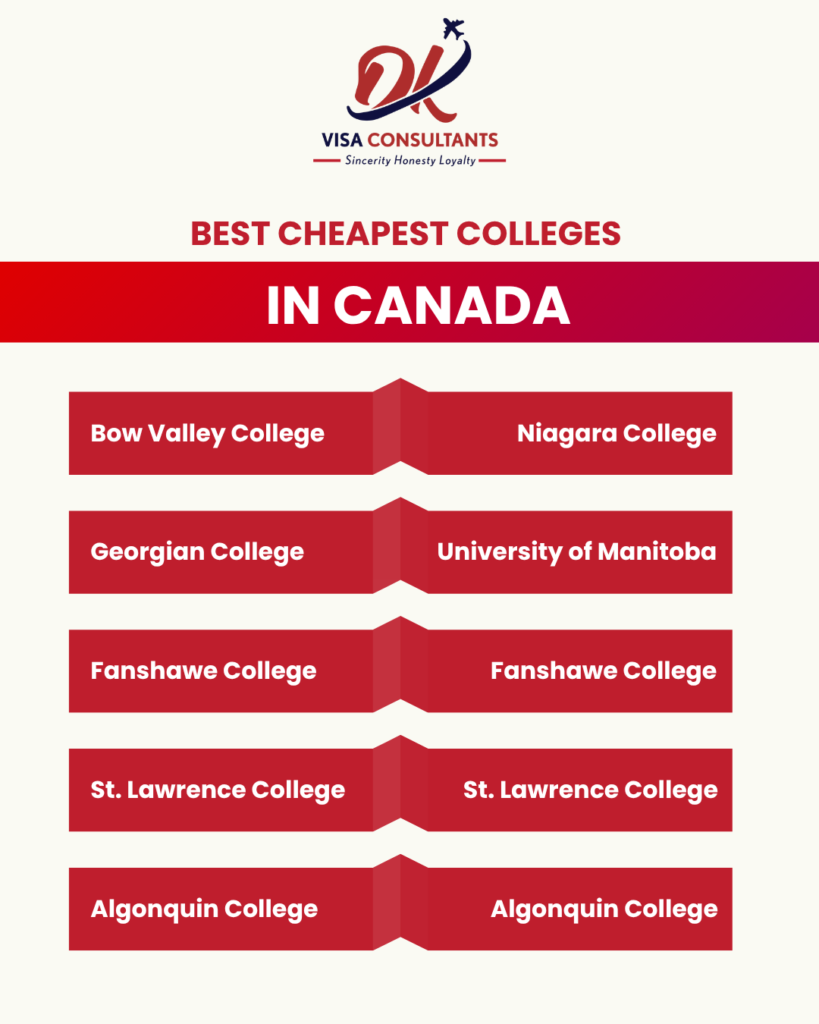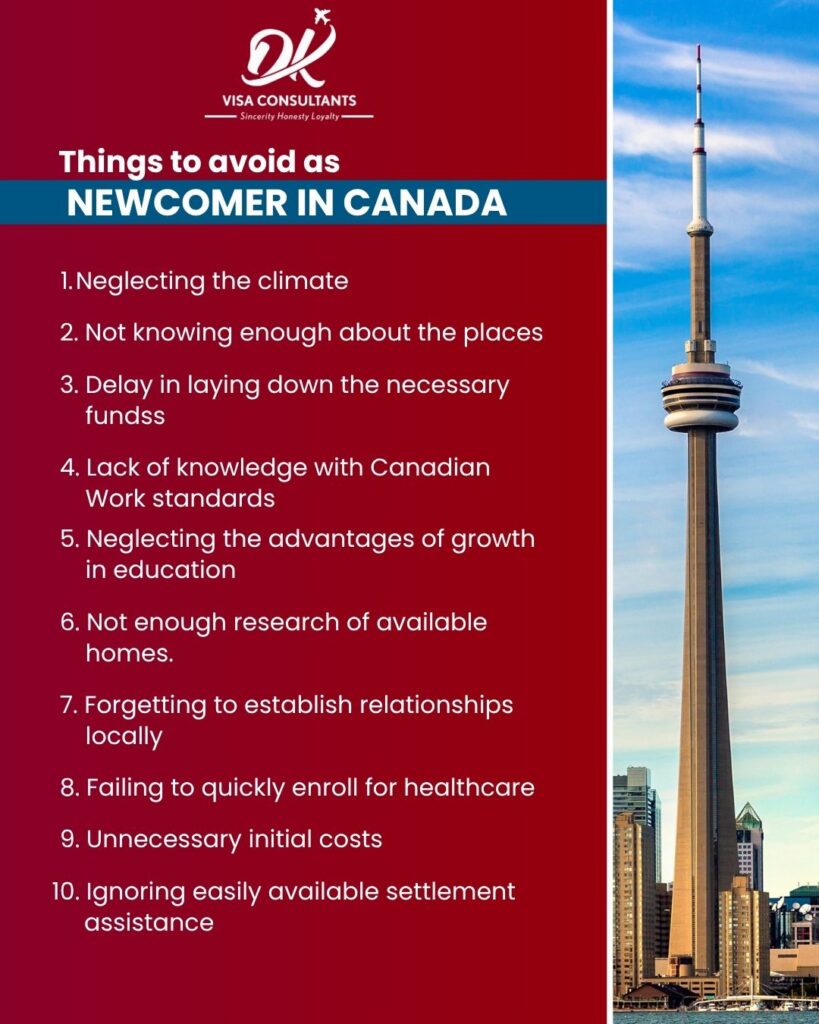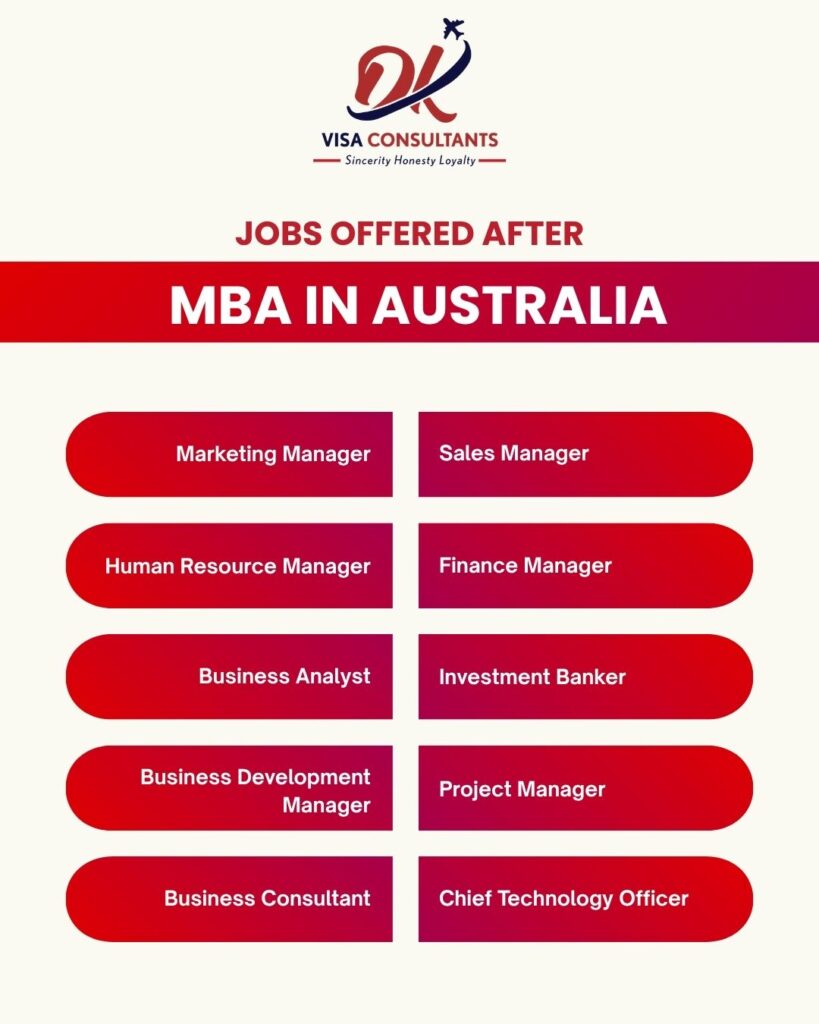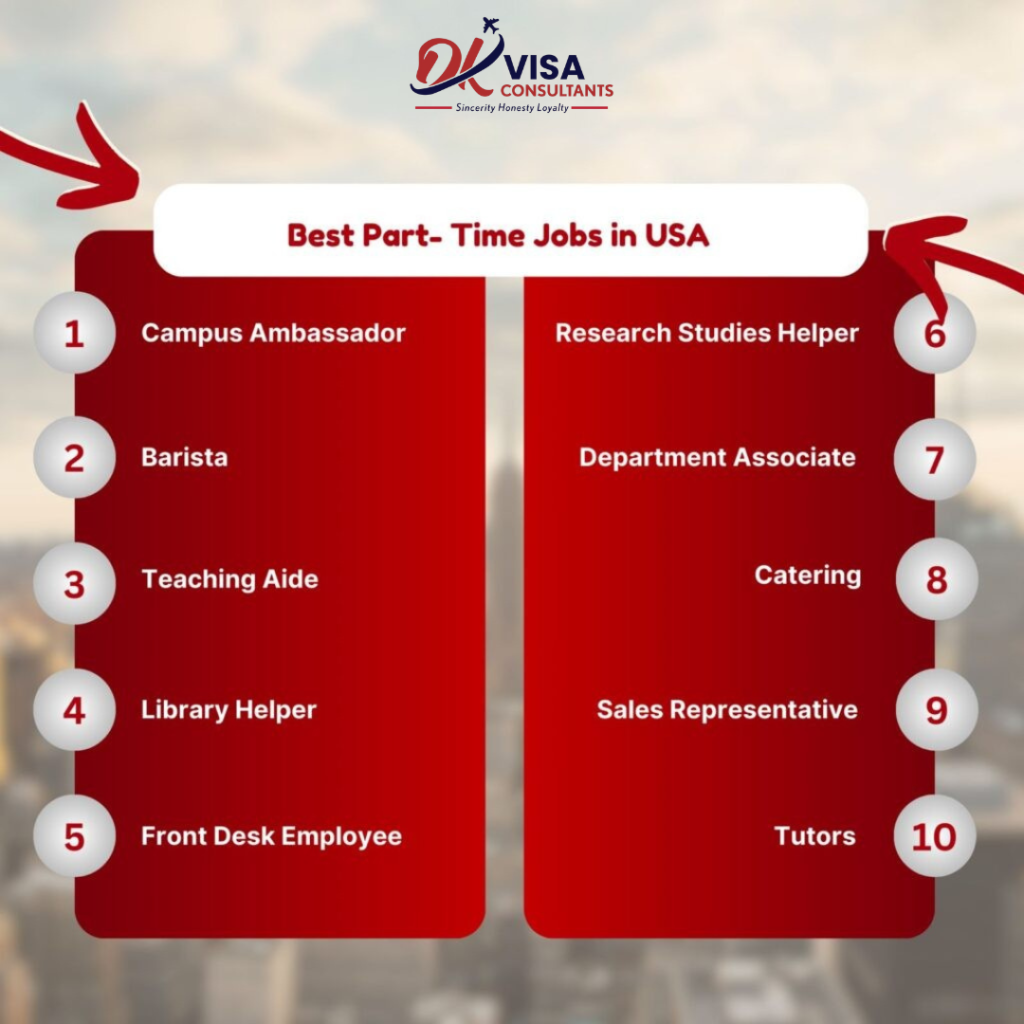Not surprisingly, Canada has been a popular study abroad destination for students from around the world. But what encourages its renown?
Due to the nation’s attractive universities, easy and comfortable living circumstances, and reasonably priced tuition, many international students prefer to study in Canada over their native countries. Excellent education is offered by numerous reasonably priced universities in Canada.
Read the blog to know about the 10 best cheapest colleges in Canada for international students. Start reading!
Best Cheapest Colleges in Canada:
There are 213 colleges in Canada. The colleges offer graduate programs, postgraduate courses, degrees, and diplomas. Programs are designed to equip students with the skills necessary for the workforce. Students can choose subjects according to their specializations they want to study:
Check out the cheapest colleges in Canada for international students:

| Colleges |
| Bow Valley College |
| Georgian College |
| Fanshawe College |
| St. Lawrence College |
| Algonquin College |
| Niagara College |
| University of Manitoba |
| Centennial College |
| Humber College |
| Conestoga College |
- Bow Valley College:
As one of the most affordable colleges in the nation for overseas students, Bow Valley College has been a major center for higher education in Alberta since 1965. The college offers certificate, diploma, and academic upgrading courses in a wide range of subjects in addition to professional assistance and specialty courses that help newcomers to Canada.
| Program offered | Diploma in Digital Design Business Administration Diploma in Legal Assistant Certificate and more. |
| Course Time Frame | 2 years |
| Estimated Tuition Fees | INR 14,030 – 8,59,000 / term |
| Province | Alberta |
- Fanshawe College:
One of the more affordable universities in Ontario is Fanshawe College of Applied Arts and Technology. Every year, many international students are accepted into the institution to complete certificate, diploma, and apprenticeship programs. The college offers more than 200 academic programs, ranging from one-year postgraduate studies and four-year honors bachelor’s degrees to two-year diplomas and three-year advanced diplomas.
| Program offered | Diploma in Technology and Engineering Graduate certificate in Telecommunications Diploma and Culinary andMore. |
| Course Time Frame | 2 years |
| Estimated Tuition Fees | INR 13,180 – 8,07,360 / term |
| Province | Ontario |
- Georgian College:
Georgian College is among Canada’s most affordable colleges for overseas students. The institution offers more than 130 programs with a focus on industry in a variety of areas, including as management, computer studies, community safety, and liberal arts. The college enrolls more than 13,000 students, 3,600 of them are foreign students from 85 different nations.
| Program offered | Graduate certificate in Big Data Analytics Bachelor of Business Administration Graduate certificate in Digital Content &More. |
| Course Time Frame | 2 years |
| Estimated Tuition Fees | INR 29,200 – 17,88,430 / year |
| Province | Ontario |
- Lawrence College:
Founded in 1967 as an Institute of Applied Arts and Technology, St. Lawrence College is in Ontario. The college offers more than thirty certificate programs, forty+ diploma programs, over twenty advanced diploma programs, and more than nine hundred online courses. Furthermore, the college’s programs are available both offline and online at the SLC-affiliated establishments.
| Program offered | Bachelors in computer Programming Masters in international business management Bachelor of Science in Nursing &More. |
| Course Time Frame | 2 years |
| Estimated Tuition Fees | INR 21,720 – 13,30,500 / year |
| Province | Ontario |
- Niagara College:
International students can receive an amazing, top-notch education at Niagara College. Applied health, community safety, food and wine sciences, and teaching English as a second language are among the college’s primary areas of focus. Its certificate, undergraduate, graduate, and diploma programs are also open to international students. 4,000 of the college’s current over 9,000 full-time employees are foreign nationals.
| Program offered | Advanced Diploma in Accounting Graduate Certificate in Supply chain management &More. |
| Course Time Frame | 2 years |
| Estimated Tuition Fees | INR 33,710 – 20,65,000 / year |
| Province | Ontario |
- Algonquin College:
Algonquin College is one of the most affordable universities in Canada, offering students from all over the world excellent teaching and possibilities for cutting edge research. The college has 19,957 total residents, including over 4,000 international students. The educational establishment provides an extensive range of courses arranged across multiple faculties.
| Program offered | Bachelor of Engineering in Automation & Robotics Graduate Certificate of Digital Marketing Bachelor of Public Safety & more. |
| Course Time Frame | 2 years |
| Estimated Tuition Fees | INR 33,710 – 20,65,000 / year |
| Province | Ottawa |
- Centennial College:
Among the top 125 community schools in Canada, Centennial College is ranked #3 for the highest percentage of employed alumni conducting applied research, and #8 overall for applied research activity. Among the best colleges in Canada, its diploma programs have reasonably priced tuition.
| Program offered | Diploma in International Business Advanced Diploma in Business Administration & more. |
| Program Time Frame | 2 years |
| Estimated Tuition Fees | INR 18,440 – 10,55,700 / year |
| Province | Toronto |
In conclusion, study in Canada is favorable for overseas students pursuing greatness, as the country is home to numerous prestigious colleges that excel in a variety of subjects.
Get in touch with DK Visa Consultant to receive individualised insights and professional advice to help to make the best choices for academic career.
FAQ
Q1. Which Canadian course offers the lowest tuition?
Ans: In Canada, business administration, business management, accounting, psychology, finance, and the arts are among of the most affordable academic fields.
Q2. Which Canadian province offers the best value for foreign students?
Ans: Studying in Ontario, British Columbia, Alberta, and Quebec is the most costly province. Manitoba, New Brunswick, and Newfoundland and Labrador are the most affordable provinces.
Q3. What’s cheaper, Canada or the UK?
Ans: In general, Canada is less expensive than the UK. This is particularly true for homes, as UK prices are far higher. However, the city or area you choose to live in might have an impact on the cost of living. Canada and the UK have comparable tax rates.
Q4. In Canada, which city has the most jobs?
Ans: The top five Canadian cities for job seekers are Toronto, Calgary, Ottawa, Vancouver, and Montreal.































